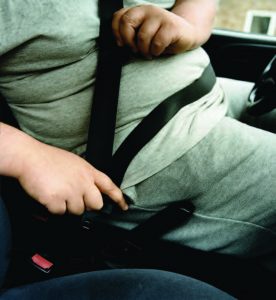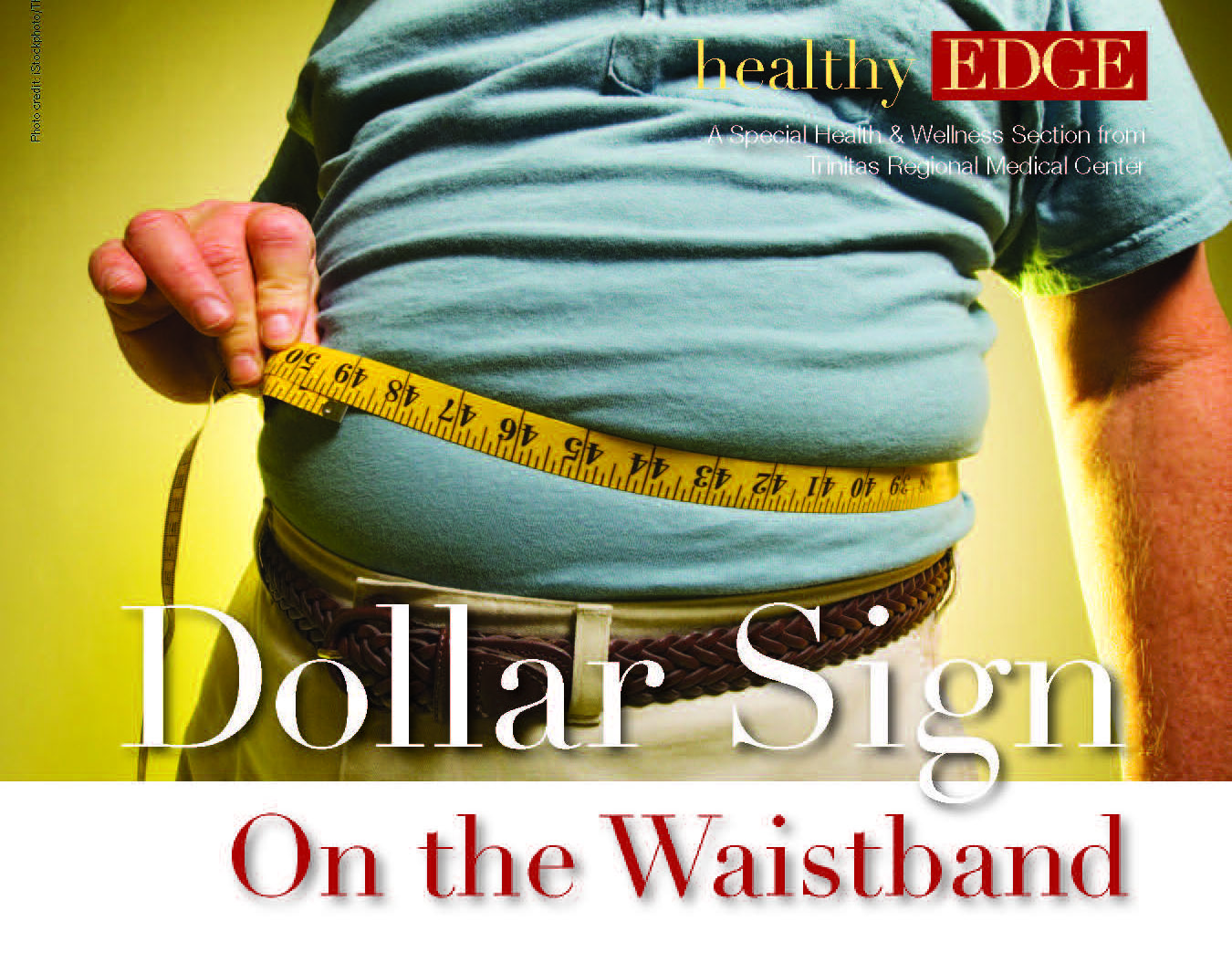What’s the ‘real’ cost of obesity?
By Lisa Milbrand
The line between social acceptance and social unacceptability can be a surprisingly fine one. Consider the smoker, once ubiquitous, who now encounters hostility whenever he or she lights up.
It’s one thing, after all, to ruin your own health. But as soon as the collateral damage of secondhand smoke was recognized—to our lungs and our pocketbooks—smokers were dead ducks.

Photo credit: iStockphoto/Thinkstock
Are the overweight next?
Laboring through the day with an extra 50 pounds is a chore. Absorbing the glances of pity or disgust each time a French fry crosses the lips is no fun, either. But what happens when the “real” costs of obesity are made clear to the American public?
There’s no question that obesity is on the rise here in the U.S. Currently, 60 percent of American adults are considered overweight. “And 30 percent are considered obese, where it causes a real medical problem,” adds Jim Dunleavy, PT, the Administrative Director of the Trinitas Health & Fitness Center. It’s not just our problem—the World Health Organization recently proclaimed that it now considers obesity a greater threat to humankind than hunger.

Photo credit: iStockphoto/Thinkstock
Furthermore, the impact of obesity goes beyond the health issues with which we are all too familiar, including skyrocketing rates of type-2 diabetes, coronary problems and other chronic and fatal diseases. Experts outside the world of medicine are now beginning to assess the cost of obesity in ways that impact everyone’s bottom line. Everything is on the table, from loss of productivity and increased risk of going on permanent disability, to the need to retrofit hospitals and build trains, planes and automobiles with wider seats, to an entirely new level of wheelchair accessibility in public and private spaces.
IT’S PUBLIC
Many inside the world of medicine feel that this is a discussion that needs to happen, if for no other reason than to create a more sophisticated level of public awareness.
“They’ve done a good job of showing the dangers of smoking, but obesity has to be the next thing they tackle,” says Gregory Charko, MD, an orthopedic surgeon at Orthopedic Physicians and Surgeons, P.C., in Union. “Everybody pays the cost for this; all health insurance premiums go up to cover the sickest people in the population. There’s a huge cost to the whole society when obese people are disabled prematurely and can’t participate in society, pay taxes and contribute.”
Some researchers have actually tried to put a number on the cost of obesity. They’re finding that about 20 percent of our annual health-care spending—or about$190 billion each year—goes toward treating obesity-related medical conditions. Yet that may be the tip of the iceberg. There are subtler ways we all pay—for instance, in our plane tickets, as airlines’ fuel costs have increased to account for the millions of gallons of extra fuel needed to transport the extra weight, and through governmental or hospital spending to retrofit public transportation and hospitals to accommodate the obese with extra-large seats, toilets that can withstand the excess weight and other accommodations.
We may also have to work harder as a result. “Obese people miss work more, so they cost employers more,” points out Penny Cappuccino, a registered dietitian at Trinitas. Some researchers peg that annual cost to employers at up to $30 billion per year.
IT’S PRIVATE
No one should be surprised if the public cost of obesity finds its way into the headlines more and more over the next few years. Hopefully, that won’t obscure the highest cost of America’s weight problem: the personal one. Almost every study shows that obese people shed years off their lives, and have much poorer health in their later lives than people with normal weight.
Much of this relates to the damage that excess weight can create on every system of the body, from the lungs to the legs. “Obese people are at very high risk of obstructive sleep apnea syndrome, as their throat narrows during sleep, causing oxygen levels to drop,” says Vipin Garg, MD, the Medical Director of Trinitas Sleep Disorders Center. “Low oxygen levels to the brain mean a person cannot get to deep sleep, and it affects all the other organs as well. It makes them more susceptible to heart disease, strokes, seizures and things of that nature.

Photo credit: iStockphoto/Thinkstock
And abdominal obesity moves the diaphragm up and stiffens the chest wall with fat around the ribcage, so the lungs aren’t able to fill with air as they would if the person wasn’t obese—that can lead to shortness of breath.”
“Obesity is also the top cause of knee replacement,” says Dr. Charko. “The force across your knee is three to five times your body weight, and if you’re morbidly obese, it just wears that joint down. If you’re over 300 pounds, you’re just carrying too much load for your skeleton, and it’s wearing out because of that increased load. Also, obese people are more prone to lower back degeneration, because of poor abdominal muscle tone.”
Chronic health conditions such as these can actually contribute to further weight gain and impairment of your health. “It’s a vicious cycle,” says Dr. Garg. “Once you’re obese, the one thing you’re supposed to do is exercise, and if you get short of breath with exertion, or have pain, you’ll exercise less—and you’ll get even more obese.”
Because of these chronic health conditions, many obese people become disabled and leave the workforce early. “They spend more of their lives disabled, their quality of life is diminished,” Dr. Charko says, “and they won’t be able to afford to do the things they want to do.”
IT’S PERSONAL
Beyond the social and financial costs of obesity are the ones that are sometimes hardest of all to fix—the psychological ones. “Obese kids may be ridiculed and bullied, and studies show that obese people may have fewer job opportunities and may be less likely to be given jobs,” says Cappuccino. Indeed, John Cawley, a heath economist at Cornell University, found that obese individuals are regularly paid less than their healthy-weight counterparts—to the tune of about 11 percent of their annual income.

Photo credit: iStockphoto/Thinkstock
No matter how you look at it, we’re all losing due to society’s weight gain.
“We’re losing in terms of their health and the quality of life, but we’re losing in terms of how productive that person is and the number of working years they have,” says Dr. Garg. “It’s a big cost to society, when people are spending more time dependent than they are working.”
b When Lisa Milbrand’s not writing about health and wellness for EDGE, she is sharing advice on everything from wedding planning to child rearing as a magazine writer and blogger. If you know a couple haggling over baby names, send them to her In Name Only blog on parents.com.





